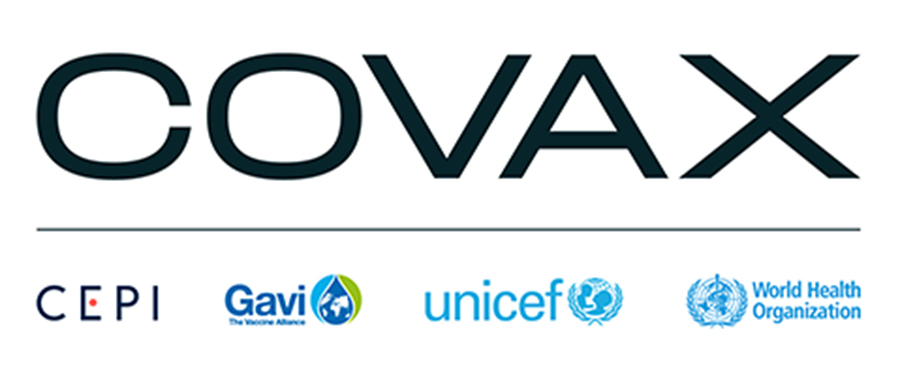COVAX, the multilateral mechanism for equitable global access to COVID-19 vaccines that was launched in 2020, will draw to a close on 31 December.
Jointly led by the Coalition for Epidemic Preparedness Innovations (CEPI), Gavi, the Vaccine Alliance (Gavi), UNICEF and the World Health Organization (WHO), COVAX supplied nearly 2 billion COVID-19 vaccine doses and safe injection devices to 146 economies and helped to avert deaths of at least 2.7 million people. Guyana received a significant amount of vaccines through COVAX.
COVAX said 92 eligible lower-income economies will continue to have the option to receive COVID-19 vaccine doses and delivery support through Gavi’s regular programmes.
Drawing on the lessons of the H1N1 pandemic, that “no one is safe until everyone is safe” COVAX placed vaccine equity at the heart of its global response, calling for every country to have at least enough doses to protect those most at risk. By the end of 2020, 190 economies of all income levels had signed agreements to participate in COVAX, making it one of the most significant multilateral partnerships of the 21st century. By November 2020, COVAX raised US$ 2 billion towards vaccine procurement; and in January 2021, 39 days after the first vaccine administration in a high-income country, the first COVAX-supplied doses were administered in a lower-income country. However, COVAX said it faced many challenges as it had no upfront cash reserves, which limited its ability to sign early contracts with manufacturers, and while it was able to ship doses to 100 economies in the first six weeks of global roll-out, export bans and other factors meant that large-volume deliveries were only received in the third quarter of 2021.
While COVAX was unable to completely overcome the tragic vaccine inequity that characterised early global response, it said it made a significant contribution to alleviating the suffering caused by COVID-19 in the Global South. Today, the initiative supplied 74% of all COVID-19 vaccine doses supplied to low-income countries (LICs) during the pandemic; and in total, 52 of the 92 AMC-eligible economies relied on COVAX for more than half of their COVID-19 vaccine supply. It said that efforts by national governments, health and frontline workers, civil society organisations and others greatly helped to deliver doses free of charge and combined with nearly US$2 billion in delivery support, helped to lift primary series coverage among the 92 AMC-eligible economies to 57%, compared to a global average of 67%. Two-dose coverage of health care workers, those most critical to saving lives and keeping health systems running, stands at 84% in lower-income economies.
COVAX said it also deployed 2.5 million doses to protect the most vulnerable in humanitarian and conflict settings through a first-of-its kind mechanism called the Humanitarian Buffer, co-designed with international humanitarian organisations, and set up as a last resort to reach those who are not easily reached through government programmes. According to COVAX, delivering novel products through non-governmental channels proved to be incredibly difficult, but the effort provided deep insight into the systemic barriers that are exacerbated by a global emergency situation. Governments, humanitarian institutions, global health organisations and others are now working to apply these lessons towards ongoing programmes, and advocating for how we can better protect the most vulnerable populations in a future pandemic.
COVAX said it considers these as lessons learnt for a future global pandemic preparedness and response architecture. This will include strengthening existing capacity by designing, investing in and implementing an end-to-end solution to equitable access ahead of time, one that centres on the needs of the most vulnerable; recognising that vaccine nationalism will persist in future pandemics and putting in place mechanisms to mitigate it – including by diversifying vaccine manufacturing so that all regions can have access to supply; and accepting the need to take financial risks to avoid potentially deadly delays to the development, procurement and delivery of medical countermeasures.
COVAX said all of its advance purchase supply agreements will have been completed or terminated by the end of 2023, with the exception of one, where a modest volume of supply will continue into the first half of 2024 in support of the new COVID-19 routine immunisation programme.
COVAX says it plans to reinvests savings, or what it called the Pandemic Vaccine Pool, gained through the successful renegotiation of supply contracts, into translating the lessons from COVAX Facility into concrete actions. This includes the establishing of an African Vaccine Manufacturing Accelerator (AVMA), a result of our learnings from the pandemic where Africa was left vulnerable to supply restrictions which will make up to US$ 1 billion available to support vaccine manufacturing on the African continent. In addition, a First Response Fund will be established to ensure financing for a vaccine response is immediately available in the event of a future pandemic. It also includes funding “The Big Catch-up” effort designed to fill the gaps in immunisation resulting from the pandemic which are now causing outbreaks of vaccine-preventable diseases around the world and threatening the achievement of Immunization Agenda 2030 goals.





